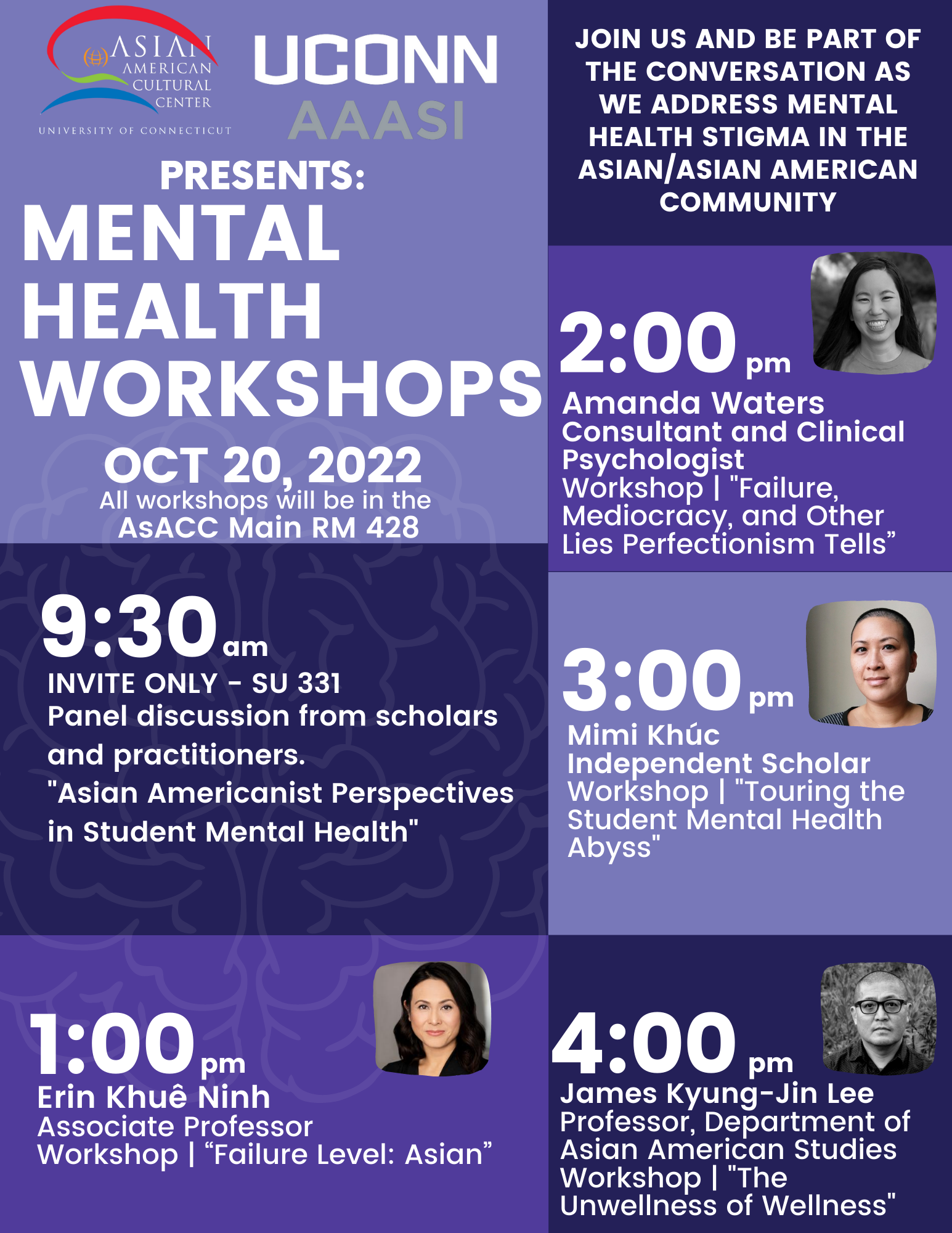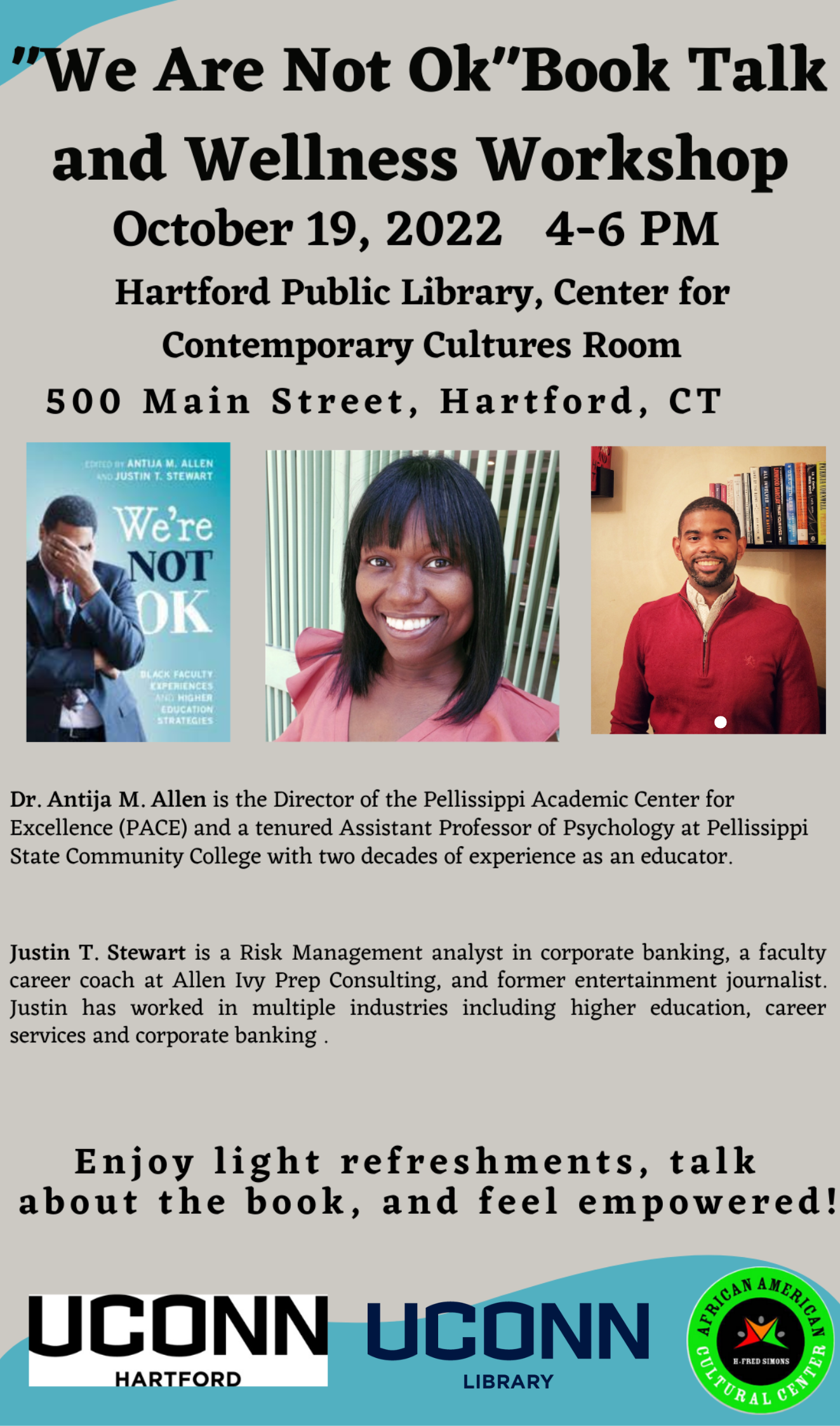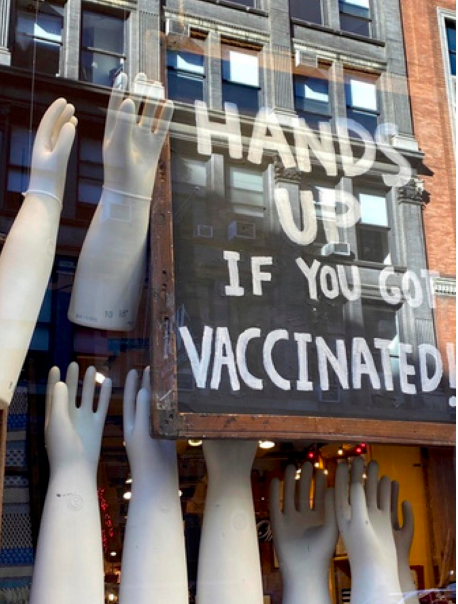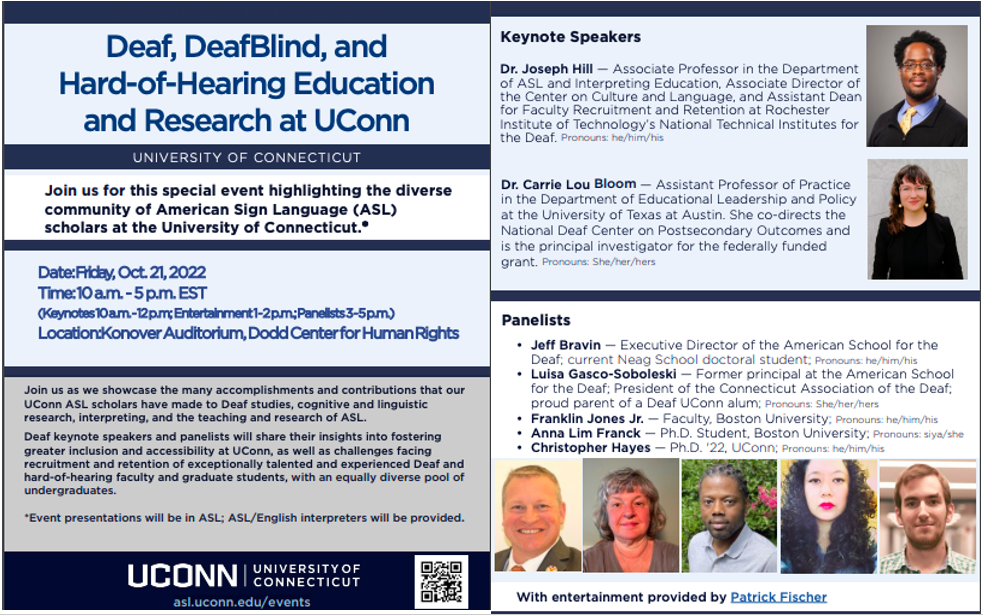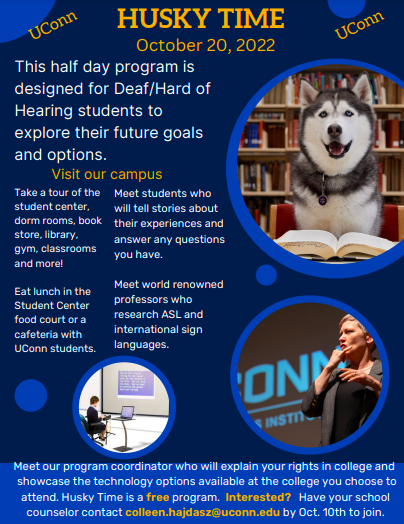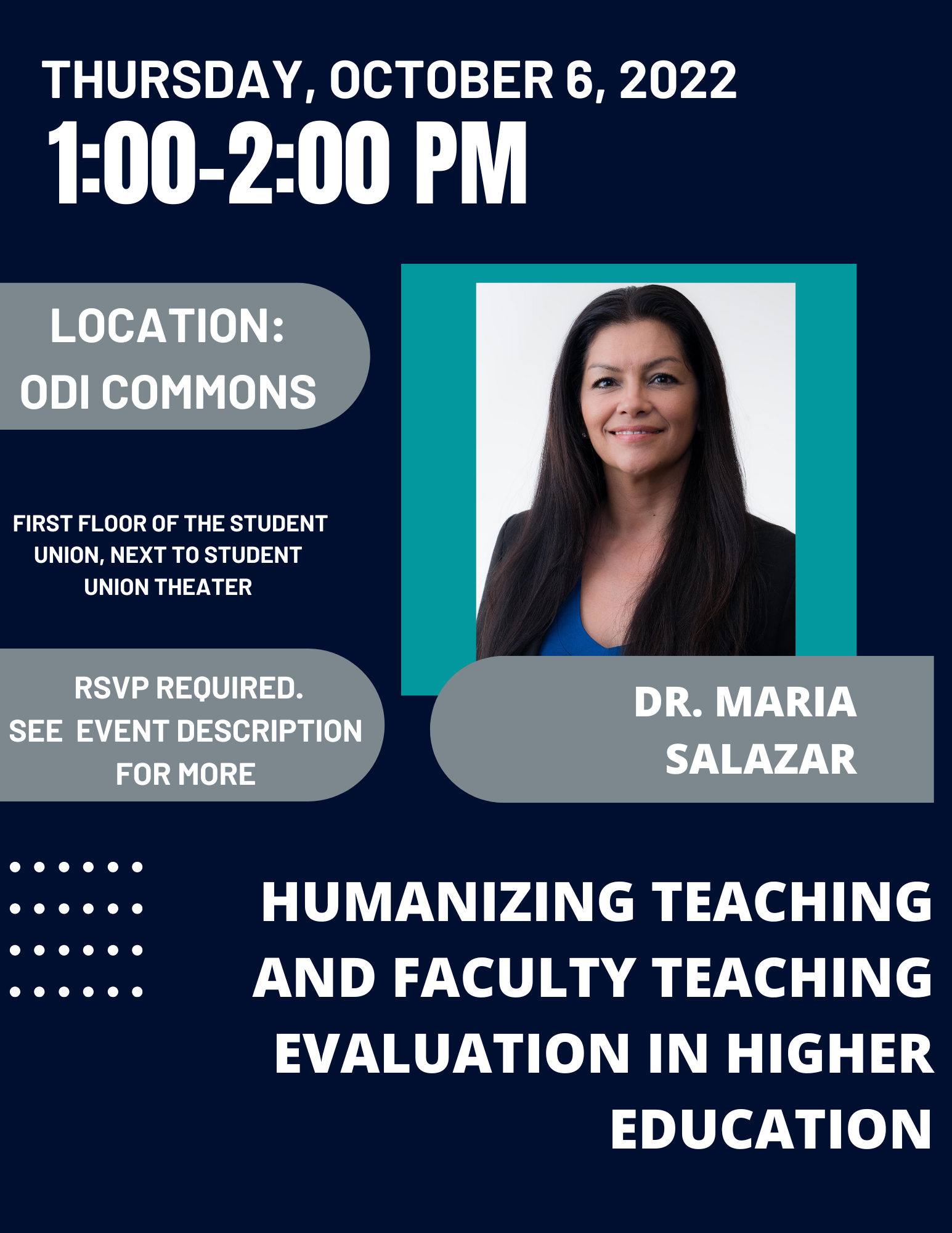To the UConn Community:
The Office for Diversity and Inclusion and the Provost’s Office would like to take this opportunity to remind you of several celebrations, commemorations, and moments of raising awareness for members of our community during the month of October:
Cultural Holidays: October holds several significant cultural and federal holidays:
International Day of Older Persons (October 1): The United Nations sets aside October 1st to draw attention to the challenges of population aging in the twenty-first century and to promote societal development for people of all ages. The theme for 2022 is “The Resilience and Contributions of Older Women.” Older women contribute meaningfully to our political, civil, economic, social, and cultural environments; however, their contributions and experiences either remain largely invisible or are disregarded, creating new and compounding existing inequalities. This day draws attention to the significant role older women play in navigating global challenges while contributing new solutions. UConn supports senior citizens through educational initiatives, including Senior Citizen Audits for learners over 62, UConn Extension’s Center for Learning in Retirement (CLIR) for retirees and other adults from all walks of life, and the Osher Lifelong Learning Institute (OLLI), based at the UConn Waterbury campus, part of a national network where adults over 50 can expand their minds and connect with other learners.
German American Heritage Day (October 6): This day honors the contributions German Americans have made to the country. It is recognized on October 6th to commemorate the October 6, 1683 arrival of the first German immigrants to the United States.
Indigenous People’s Day (October 10): Indigenous People’s Day celebrates the cultures, histories, and contributions of Native and Indigenous peoples in the United States and across the world. It honors America’s first inhabitants and the Tribal nations that continue to thrive here today, recognizing their contributions and acknowledging their resilience and strength in the face of a centuries-long campaign of violence, displacement, assimilation, and terror wrought upon Native and Indigenous communities in the United States and beyond. Currently, 14 states celebrate Indigenous People’s Day, and in 2021, President Biden proclaimed it a national holiday. The State of Connecticut does not currently mark Indigenous Peoples Day, though several towns and communities within Connecticut, including Mansfield, do.
UConn recognizes Native and Indigenous resilience and strength every day of the year. We acknowledge that our university sits on lands taken through the long campaigns of violence, displacement, assimilation, and terror through our Land Acknowledgement Statement. We encourage reading this statement before any event held on UConn’s spaces. We also honor the cultures, histories, and legacies of Native and Indigenous peoples every day, primarily through the Native American Cultural Programs (NACP), which provides programming, initiatives, resources, and trainings for the Native and Indigenous Peoples who make a home at UConn. NACP offers several events to commemorate Indigenous People’s Day:
-
- “Fostering Indigenous Community Through Advocacy at a Land Grant Institution: A Conversation with LandGrabCT and NACP.” Join us for a dialogue discussion around UConn’s Land Grant History: Advancing advocacy efforts, increasing representation, and finding community through advocacy. This in-person event will be held on Monday, October 10th, from 6:00 to 7:30 PM in the ODI Commons.
- Film Screening: “Truth Tellers” and Live Q&A with Maulian Dana (Penobscot Nation Tribal Ambassador, Human Rights Activist, Poet). This event will be held on Tuesday, October 11th, from 5:00 to 7:00 PM in the SU Theatre. Doors open at 4:45 PM.
- “On whose land are we “playing”? A conversation on sport, reciprocity, and kin-making on Native Land.” with Dr. Chen Chen. This event will be held on Wednesday, October 12th from 6:00-7:30pm in the ODI Commons (SU 103).
- “The History of Indigenous Community at UConn: Where We Have Been & Where We Are Going” featuring Chris Newell (Passamaquoddy), Samantha Gove (Mashantucket Pequot), and Sage Phillips (Penobscot). Thursday, October 13th, 5:00 PM in the ODI Commons.
See more of these events on the NACP website.
Columbus Day (October 10): Columbus Day was made a federal holiday in the United States in 1968, set to begin in 1971. In 1934, Congress passed a statute requesting an annual proclamation from the President. According to the Congressional Research Service, Congress believed that “by commemorating Columbus’s voyage…the nation would be honoring the courage and determination which enabled generations of immigrants from many nations to find freedom and opportunity in America.” It has especially become a point of honoring Italian American heritage in the United States. While President Franklin Delano Roosevelt made such a proclamation that year, Columbus Day was not made a federal holiday until President Lyndon B. Johnson signed legislation in 1968.
Heritage Month Celebrations:
German American Heritage Month (October): German American Heritage Month honors the contributions made by German Americans, the largest ancestry group in the United States. The first German immigrants came to the United States on October 6, 1683, when thirteen families settled in Pennsylvania. Americans commemorated the anniversary of these families’ arrival with National German American Day in the nineteenth and early twentieth centuries, though the holiday fell out of favor following World War I. President Ronald Regan proclaimed October 6th as German American Day in 1983 to celebrate the 300th anniversary and to strengthen the United States’ relationship with Germany.
Hispanic Heritage Month: (September 15th – October 15th): Hispanic Heritage Month recognizes and celebrates the many diverse cultures and histories within Hispanic and Latinx communities, as well as members of those culture’s achievements and contributions to the United States. First recognized as Hispanic Heritage Week by President Lyndon Johnson in 1968, it was expanded to a full month by President Ronald Reagan in 1988. This month is observed from September 15th – the anniversary of Guatemalan, Honduran, El Salvadorian, Nicaraguan, and Costa Rican independence – through October 15th. It also includes Día de la Raza on October 12th, an alternative holiday to Columbus Day that celebrates and honors the peoples, traditions, and cultures destroyed by European colonization. This year’s theme is “Unidos: Inclusion for a Stronger Nation.”
This Hispanic Heritage Month, we invite the entire community to participate in the Puerto Rican / Latin American Cultural Center’s (PRLACC) events:
-
- Illuminating the Path. Thursday, October 6, at 7:00 PM in the Jorgensen Center for the Performing Arts. As part of its 50th anniversary, PRLACC has commissioned a musical piece by composer Paola Marquez to be premiered at UConn, featuring our own alumna Angie Durrell ’11 (violin). The musicians will also include two other UConn Alumni: Jonathan Garcia ’12 (trumpet) and Joseph Bush ’15 (piano). This event will include a concert to highlight a musical soundscape through Latin America and the Caribbean, and a conversation with the composer. See more at the Jorgensen Center’s event page.
The School of Nursing will also be holding a fireside chat celebrating Hispanic Heritage Month. This event will be open to the entire University community, including alumni, to celebrate Hispanic Heritage Month and to highlight the work that the School of Nursing is doing in diversity, equity, and inclusion.
Also be sure to check out events held by La Comunidad Intelectual, a learning community that works to create a welcoming space on campus for students who identify as Latina/o/x and/or who are interested in issues that affect the Latin American and Caribbean communities. Check out their Instagram page for upcoming events!
Italian American Heritage Month (October): October is Italian American Heritage Month. Over 5 million Italians immigrated to the US between 1820 and 2000, and there are currently over 26 million Americans of Italian descent living in the US. Proclaimed in 1989 by President George H.W. Bush and Congress, this month honors the achievements, contributions, and successes of Italian immigrants and their descendants in the United States. Each October, millions of Americans of Italian descent come together to reflect on their histories, traditions, and values. Celebrations typically include cultural festivals and parades, the largest of which is held in New York City.
LGBTQIA+ History Month (October): LGBT History Month was inaugurated in 1994 by Missouri high school teacher Rodney Wilson, in order to celebrate the national and international contributions made by members of the LGBTQIA+ community. Wilson chose October because schools are in session and because October already has several LGBTQIA+ traditions, like National Coming Out Day (10/11), International Pronouns Day (10/20), Intersex Awareness Day (10/26), and Asexual Awareness Week (last full week of October). LGBTQIA+ History Month that provides possibility models, builds community, and emphasizes the continued importance of civil rights.
ODI invites you to join in celebrating LGBTQIA+ History Month through several events hosted by the Rainbow Center:
-
- Gender Affirming Closet (10/6)
- National Coming Out Day, Scrapbooking your Life as a Movie (10/11)
- Free and Rapid HIV/Hep C testing at the Rainbow Center (10/12)
- “Hey Y’all” a performance by comedian and writer Fortune Feimster, co-hosted by the Jorgensen Center (10/15)
- A LGBT Center Awareness Day table (10/18) in the Student Union
- Asexual Awareness week (10/23)
- Free and Rapid HIV/Hep C testing at the Rainbow Center (10/24)
- Intersex Awareness Day Educational Tabling (10/25)
- Platonic Stargazing (10/26), an event to introduce the community to different identities along the asexual and aromantic spectrums.
- The Annual Rainbow Center Art Gala (10/27)
- Alumni Happy Hour with the UConn Foundation (10/27)
See the Rainbow Center’s events page and Instagram for more.
National Disability Employment Awareness Month (October): In 1945, Congress designated the first week of October as “National Employ the Physically Handicapped Week,” in part, to help disabled WWII veterans find employment. Since then, the concept of disability has shifted. Congress dropped the word “physically” in the 1970s in order to provide a more inclusive view. In 1973, Congress passed Section 504 of the Rehabilitation Act which protects the rights of persons with disabilities in programs and activities that receive Federal financial assistance. Section 504 protects the rights not only of individuals with visible disabilities but also those whose disabilities might not be apparent.
Over the next few decades, activists and educators helped shift national understanding of ability, leading to more inclusive views about type of disability, greater recognition of the intersections between identity and ability, and stronger legislation to protect people with disabilities from discrimination. In 1990, the United States passed the Americans with Disabilities Act (ADA), which made it illegal to discriminate along the basis of identity and guarantees that people with disabilities have the same opportunities as everyone else in the United States. This heritage month celebrates these accomplishments while also raising awareness of barriers that still need to be addressed. Find more about the month at the Department of Labor’s website.
UConn has a strong commitment to expanding inclusion through the Center for Students with Disabilities. UConn also promotes awareness through academic programs like the Certificate of Interdisciplinary Disability Studies in Public Health and the Human and Developmental Sciences Families and Disabilities concentration, as well as academic centers like the Center for Excellence in the Study of Developmental Disabilities and the Collaborative on Postsecondary Education and Disability, and through courses on Disability Studies at the Storrs and Waterbury campuses.
Religious Holidays: October holds several significant religious holidays for members of the UConn Community:
Yom Kippur (Sundown October 4th – Sundown October 5th), Sukkot (October 9th-15th), and Shemini Atzeret / Simchat Torah (October 16th-18th). Members of Jewish communities celebrate four High Holy days during the month of October.
Yom Kippur, which is Hebrew for “Day of Atonement,” comes 10 days after Rosh Hashanah, the Jewish New Year. Yom Kippur is the holiest and most solemn day of the year in Judaism. The main themes for Yom Kippur are repentance and atonement.
Sukkot, which is Hebrew for “Huts,” comes 5 days after Yom Kippur. It is one of Judaism’s three pilgrimage festivals. This seven-day celebration recalls the days when Israelites lived in huts while wandering for forty years in the desert wilderness after the Exodus from Egypt.
Shemini Atzeret (Eighth Day of Assembly) / Simchat Torah (“Rejoicing in Torah”) These two holidays come at the conclusion of Sukkot – in Israel they are combined into one holiday; in the rest of the world, they are celebrated over two consecutive days. These two holidays anticipate the coming year with prayer and engaging with the Torah. Simchat Torah celebrates finishing the yearly cycle of reading the whole Torah and immediately begin again at the beginning.
UConn Hillel will hold several events for this year’s Yom Kippur, including a dinner and Erev Yom Kippur service and Kol Nidre prayer starting at 4:00 PM on October 4th. Hillel will also hold morning services immediately followed by a discussion led by a Shaliach Tzibur starting at 9:30 AM on October 5th.
Commemorations will conclude on October 5th with Mincha (afternoon), Ne’elah (concluding), and Havdala (separation) services starting at 6:00 PM, followed by a breaking of the fast at 8:00 PM. These events are free and open to the entire community. Please visit Hillel’s website for more.
Mawlid (October 7th-8th and 12th-13th) Mawlid is an Islamic holiday celebrating the birth of the Prophet Muhammad. Celebrations, traditions, and dates vary by location and between Shia and Sunni Muslims. Shia Muslims celebrate Mawlid on the 12th day of Rabi ul Awal (starting at sundown on October 7th this year), while Sunni Muslims celebrate on the 17th day (starting at sundown on October 12th this year). Celebrations might include open-air festivities and lectures or classes on Muhammad’s life or on how Muslims can live an honorable life. Muslim communities might also hold events to increase the understanding of Islam in non-Muslim communities.
Diwali (October 22nd –October 26th): Diwali is the festival of lights, a major festival celebrated by Hindus, Sikhs, Jains, and some Buddhists. Although Diwali is a five-day celebration, the height of celebrations typically occurs on the third day – October 24th this year – which is the darkest day of the lunar month. Diwali is celebrated by billions of people around the world. Though traditions may vary based on location and religious practice, the most common theme is the triumph of light over darkness. Diwali is generally a time to gather with families and celebrate the victory of good over evil.
To see more information about resources and events happening this month and throughout the semester, please visit our events page at www.diversity.uconn.edu/events.
Sincerely,
Frank, Anne, and Jeff
Frank Tuitt
Vice President and Chief Diversity Officer
Anne D’Alleva
Interim Provost and Executive Vice President for Academic Affairs
Jeffrey F. Hines, MD
Associate Vice President, Chief Diversity Officer, UConn Health
